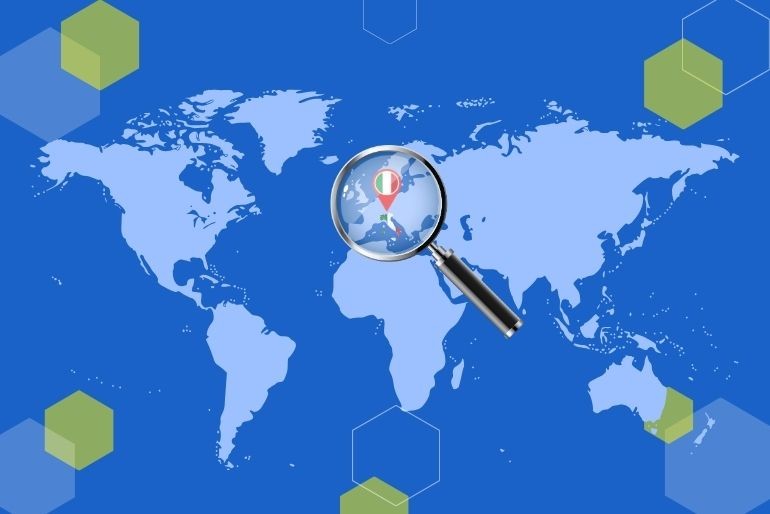Authorities in Italy look set to revamp their iGaming regulations this year. With the approval of the 'Reorganisation Decree,' Italy will undergo its first regulatory assessment since it was authorised in 2011.
This regulatory overhaul marks a pivotal moment for Italy's approach, introducing reforms to modernise the industry and address licensing, market dynamics, and consumer protection challenges.
This article explores the evolving landscape, examining the current issues and the anticipated changes ahead.
The dynamics of iGaming in Italy
Betting on horse racing, casino games, and poker, is legal and locally licensed in Italy. Lottery operations are monopolised by a private entity. Gaming machines, betting, and racing are regulated and require local licences, with elements of private monopoly in racing.
Companies seeking licences are subject to specific capital requirements as well as tax requirements. iGaming operators are generally subject to corporate tax in an amount varying from 25% to 30% across countries. The operator of an Italian licence does not have to be established in Italy; instead, it must incorporate itself in an EU member state such as Malta (or in any of the EEA states). Servers for the gambling activity must be based in an EEA jurisdiction too.
Currently Italy has 80 licensed iGaming operators, with revenues projected to reach €2.98 billion in 2024. In 2022, the market saw a surge in total wagers, reaching over €136 billion. This marked a growth of approximately 23% compared to 2019, the year prior to the COVID-19 pandemic. Likewise, gross gaming revenue (GGR) exceeded €20 billion in 2022.
Black market activity
According to a report by the Italian sports newspaper La Gazzetta dello Sport, Italian punters stake about €25 billion a year on the black market. Three-quarters of this figure (€18.5 billion) is spent on illegal sites. In 2023 alone, the Italian Customs and Monopolies Agency (ADM) blocked more than 9,800 illegal gambling sites, compared with 5,400 in total last year. Spending, meanwhile, is on the rise.
The Italian government is actively fighting against teenage gambling addiction and betting.
In a survey conducted in the year 2023, the gambling habits of 4825 Italian 15-year olds was studied. The study found that 64% were regular gamblers, participating in gambling activity frequently in the last (12 months), and 52% gambled at least once during the same period.
The increasing gaming activity within youngsters highlights the need to address youth addiction through structured primary and secondary prevention programs.
Advertising Rules
At present, there is a ban on all forms of gambling adverts in Italy. The ban covers any form of advertising, including indirect advertising, relating to games or betting with cash prizes, however carried out and by any means, including TV and radio broadcasting, the press, billboards, internet, digital and electronic tools, and social media. However, the comprehensive ban on advertising for licensed gambling operators in the country may be inadvertently bolstering the black market.
The lack of advertising makes it challenging for citizens to distinguish between gambling websites that are licensed and regulated under national consumer protection laws, and those that operate without such licences. This potentially drives more people to unregulated sites, undermining the intended protective measures of the ban.
New Reforms Outlined
The Italian Board of Ministry has approved significant reforms including issuing remote gaming licences. These changes mark a significant change from previous policies. Key provisions include:
- 50 new online gaming licences will be tendered before December 31, 2024, replacing expiring licences.
- Each licence will be valid for nine years and cost €7 million. Operators must also pay an annual fee of 3% of Gross Gaming Revenue (GGR) net of gambling taxes and invest 0.2% of GGR net of taxes in responsible gaming campaigns. Groups are limited to holding a maximum of five licences.
- Stringent suitability criteria and increased penalties aim to deter non-compliant operators.
- Operators are restricted to one website with an Italian top-level domain name and logo, limiting the use of skins/white-label sites.
- Shops selling top-up cards for gaming accounts must be registered, paying an annual fee of €100 per shop, with restrictions on gambling activity and fund withdrawals.
- Strict measures are implemented to prevent offering games in Italy through unlicensed websites, including payment blocking measures.
Conclusion
The upcoming reforms represent the fourth attempt to overhaul Italy’s igaming industry. These changes aim to strengthen an already robust market, the second biggest in Europe, while also providing better protection for consumers.
However, the reform neglects to address new regulations for advertising, despite the ineffectiveness of Italy's current ban in reducing addiction. Underage gaming remains a concerning issue, with minors accessing gaming content through various loopholes.
Moreover, the black market poses a significant challenge to the integrity of Italy's gaming industry, facilitating unregulated betting and fostering criminal activities. Ultimately, the effectiveness of these reforms will depend on their implementation and enforcement, as well as ongoing efforts to adapt to emerging challenges in the landscape.

 by Shenaly Amin | 15 May 2024
by Shenaly Amin | 15 May 2024
 4-min read
4-min read




